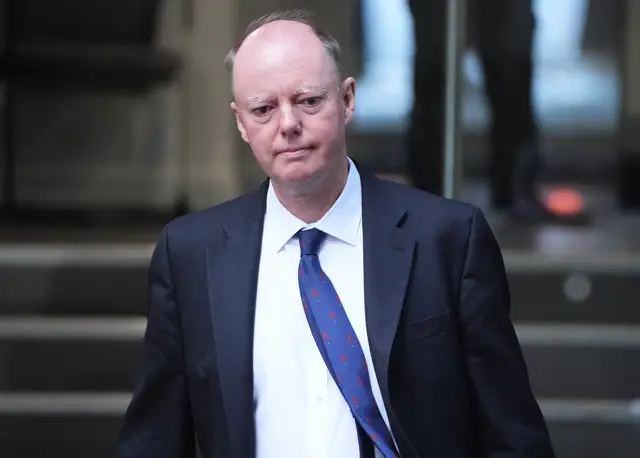Assisted dying should not undermine good end-of-life care, say UK’s top doctors
The chief medical officers of the four nations also said it is ‘entirely reasonable for any doctor to give their opinions’ in the conversation.

The UK’s top doctors have said legalising assisted dying should not undermine good end-of-life care and medics should be free to decide whether to take part in any new service.
The chief medical officers and their deputies for the four UK nations have signed a letter, alongside the national medical director for NHS England, giving advice to help doctors with regard to the assisted dying debate.
The letter, signed by England’s chief medical officer, Professor Sir Chris Whitty, and his counterparts, was published by the Department of Health and Social Care on Wednesday, as a new Bill was introduced in the House of Commons.
While the Terminally Ill Adults (End of Life) Bill would apply only to England and Wales, a Bill on assisted dying is currently also before the Scottish Parliament.

The letter acknowledged the “wide spectrum of considered views on it (assisted dying) within the profession as in society” and noted that many doctors have “strong, informed opinions on this important topic”.
It said it is “entirely reasonable for any doctor to give their opinions, alone or in combination with others, and that the public would expect that”.
But the top medics warned that identifying patients without consent, directly engaging patients in debate, and implying that a doctor or group speaks for the medical profession rather than expressing their personal views should all be avoided.
The signatories, who included Professor Sir Michael McBride, CMO for Northern Ireland, Professor Sir Gregor Smith, CMO for Scotland, Professor Sir Frank Atherton, CMO for Wales, and NHS England’s national medical director Professor Sir Stephen Powis, said the decision on assisted dying is one “for society as a whole” and must be “expressed through Parliament”.
But they warned that the provision of good end-of-life care must not be undermined at any stage, and added that healthcare staff should be able to decide whether to take part in providing assisted dying.
They said: “Whatever Parliament decides, we believe the medical profession will be unanimous on two things: that we must not undermine the provision of good end-of-life care for all, including the outstanding work done by palliative care clinicians; (and) that individual doctors and other healthcare workers should be able to exercise freedom of conscience as, for example, happens with abortion care currently.”
In 2021, doctors’ union the British Medical Association (BMA) changed its position on assisted dying from opposition to neutral.
The BMA has previously outlined that it believes any legislation to permit physician-assisted dying should be based on an opt-in model, with only doctors who positively choose to participate being able to do so.
The detail of Labour MP Kim Leadbeater’s Bill is not expected to be set out until closer to November 29 when it is due to be debated on for the first time.





